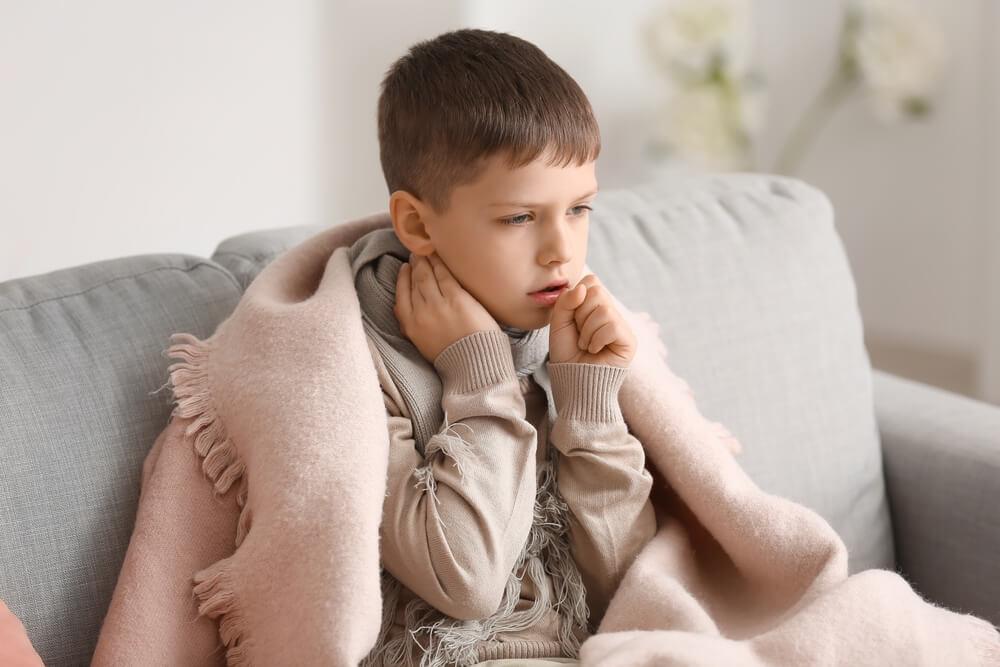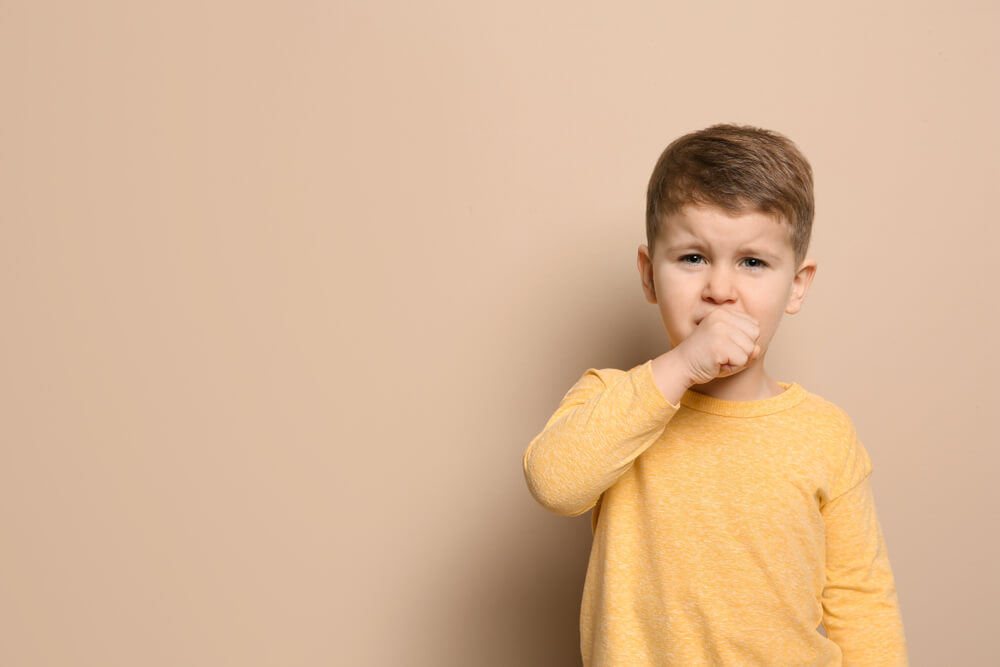Your child may have a toddler’s bronchitis (may also be referred to as bronchiolitis if you are younger than 2 years of age) if they have a deep and chesty cough and fever. In most cases, the condition will disappear within three weeks without medical treatment. However, sometimes treatment may be necessary. In order to help you become more knowledgeable on bronchitis in kids, we have compiled some of the most important facts about this condition. Learn about a toddler’s bronchitis and find out how you can help your child recover faster. This expert-approved article will reveal the common bronchitis symptoms in kids, the diagnosis process, and possible treatment methods. Naturally, seeking out the help of a trusted healthcare professional should be your first step. If you are located in the area or searching for the best, we recommend reaching out to a pediatrician in Miami, Florida.
Without further ado, here is what you must know about a toddler’s bronchitis.
What Is a Toddler’s Bronchitis?
Acute bronchitis, also commonly referred to as “chest cold,” is a disease where the bronchi or the large airways to the lungs become swollen, making excessive amounts of mucus. The cough associated with acute bronchitis starts suddenly and typically fades away within three weeks without medical assistance. According to the American Lung Association or ALA, the main cause of acute bronchitis is a viral infection. In this case, the condition is referred to as viral bronchitis. However, the cause can also be bacteria; in this case, we refer to the condition as bacterial bronchitis. Another possibility is chronic bronchitis – however, this is uncommon in children. Chronic bronchitis can produce symptoms similar to acute bronchitis, but the side effects can last four or more weeks.
If you believe your child has toddler’s bronchitis, reach out to a healthcare professional. As mentioned, the condition is likely to go away without the help of a doctor. However, it is best to consult an expert such as Dr. Hernandez-Puga.
What Are the Bronchitis Symptoms in Kids?

The number one sign of bronchitis is cough. This symptom may be accompanied by mucus, but that is not always the case. If the mucus is present, it can range in color from green, gray, yellow, and even clear. Keep in mind that the mucus color does not always indicate a bacterial infection.
In some instances, bronchitis symptoms in kids can also include pain. If your child says their chest aches while coughing, they may have bronchitis.
Here are some other bronchitis symptoms in kids to be aware of:
- Sore throat
- Chills and fever
- Fatigue
- Body aches and headache
- Stuffy nose
Other possible bronchitis symptoms in kids are shortness of breath and wheezing. According to the National Health Service or NHS, these signs are usually linked with chronic bronchitis. However, wheezing and shortness of breath can also point to more serious medical conditions.
If you notice some or all of the mentioned bronchitis symptoms in kids, it is best to talk to a trusted pediatrician.
What Causes Bronchitis in Kids?
Depending on the illness’s root cause, we can distinguish three main bronchitis types. Before creating the best treatment plan, your pediatrician will determine if your child has bacterial, viral, chronic, or acute bronchitis. Here are the three main causes of bronchitis.
Bacterial Bronchitis Overview
Bronchitis in kids can happen due to the growth of bacteria in the bronchi. In this case, we refer to the condition as bacterial bronchitis. The NHS claims this bronchitis type is less widespread than the viral type. Nevertheless, the symptoms are usually identical to viral bronchitis, and they don’t last a long time.
According to research from 2009, you cannot tell whether bronchitis is bacterial or viral based on the mucus color.
Only five percent of cases concerning acute bronchitis happen due to the growth of bacteria.
Viral Bronchitis Overview
As mentioned, bronchitis in children can also occur due to a viral infection. The ALA says that acute bronchitis can result from the flu or the common cold. If you are dealing with bronchitis in children caused by a virus, you may expect the illness to last up to ten days. However, the CDC adds that the child may cough for up to three weeks. Luckily, the cough related to viral bronchitis usually goes away without medical assistance.
Antibiotics do not help with viruses. Approximately 95 percent of all patients with acute bronchitis got infected by viruses.
Chronic Bronchitis Overview
Bronchitis in children that lasts four or more weeks is likely chronic bronchitis. The American Thoracic Society or ATS claims that chronic bronchitis may come back post-treatment. Usually, habits such as smoking are linked with chronic bronchitis. Due to this fact, chronic bronchitis is generally very rare in children.
According to study findings from 2020, approximately 5.5 percent of teenagers got diagnosed with chronic bronchitis. Out of the study participants, 37 percent were smokers.
What Are the Risk Factors of Bronchitis in Children?
Bronchitis in kids can happen to any child. However, a few risk factors may increase the likelihood of this illness. These include:
- Having asthma
- Chronic sinus problems
- Allergies, like perfume or pollen allergies
- Exposure to secondhand smoke or outdoor pollution
- Living in a crowded area
Best Treatment for Bronchitis in a Toddler
If a virus causes pediatric bronchitis, antibiotic treatment will not be helpful. For the best results, the child’s doctor will likely recommend getting adequate rest and consuming plenty of fluids to stay hydrated. Your child may also need to use a cool mist humidifier to assist in proper breathing. Children older than four years could also use cough drops or OTC cough suppressant drugs. Alternatively, younger kids can be given high-quality honey to alleviate cough symptoms.
If you seek treatment for bronchitis in a toddler with a headache or a fever, you can also opt for ibuprofen or acetaminophen. If the child is having issues with breathing, the pediatrician may recommend using an inhaler. The ALA and CDC claim that children with bacterial bronchitis might not need medications. However, treatment for bronchitis in a toddler could involve antibiotics. In this case, treatment typically lasts up to two weeks.
Discuss the best treatment plan with your healthcare professional. Your toddler’s doctor will recommend the best possible treatment for your child, depending on the symptoms and the type of bronchitis. The doctor may recommend nebulizers or inhalers to help the child breathe properly.
How Is This Condition Diagnosed?

The doctor will want to begin the diagnosis process by performing a physical examination. However, before this, you will be asked the following questions:
- What are your child’s symptoms?
- How long have the symptoms persisted?
- Do you have additional concerns?
- Has your child had previous breathing problems?
The pediatrician will check the child’s throat, nose, and ears and listen to the lungs. In some cases, an X-ray may also be necessary to make sure that the symptoms aren’t related to pneumonia.
How Can I Prevent This Condition?
Remember, this is a very contagious condition. If a virus causes bronchitis, washing your hands frequently is mandatory. It is best to isolate the ill child from other healthy children until they recover. Also, make sure not to expose children to pollutants such as secondhand smoke.
Give Us a Call Today
Is your child coughing, wheezing, and having problems sleeping at night due to these uncomfortable symptoms? Give us a call today, and let us help you. Our team of experts will assist you with concerns about your child’s health. Book an appointment today to get started.




